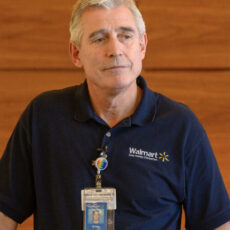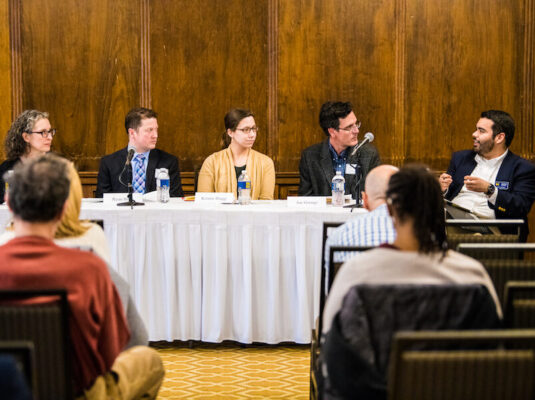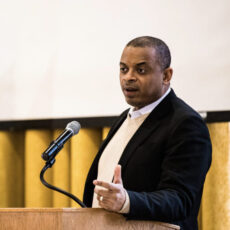How Workforce Works: Participant Perspectives
Shamar Herron, deputy director of Michigan Works! Southeast, leads a discussion with providers and participants on the front lines of workforce development about what works and what doesn’t. Panelists included Jonathan Gonzalez, Arielle Johnson, Coy Mosley, and Beulah Walker.



